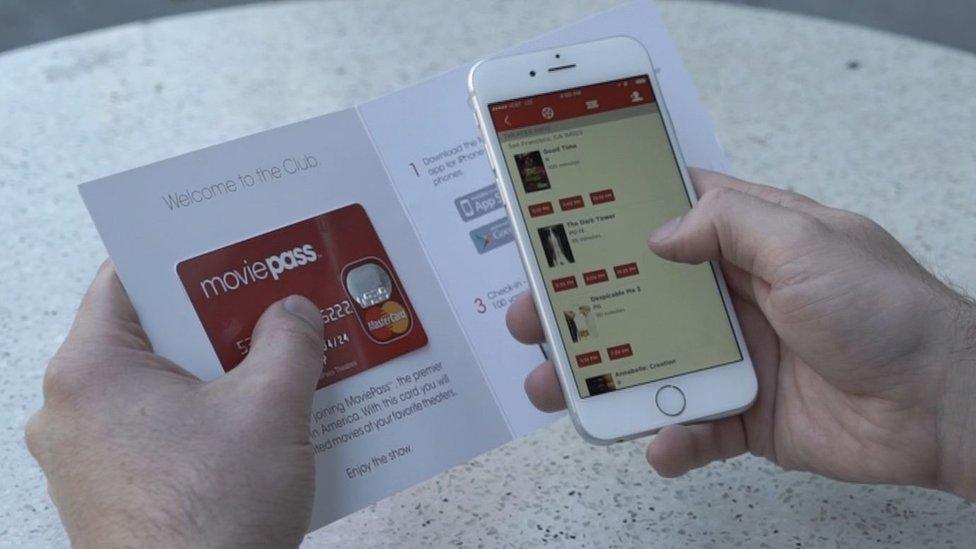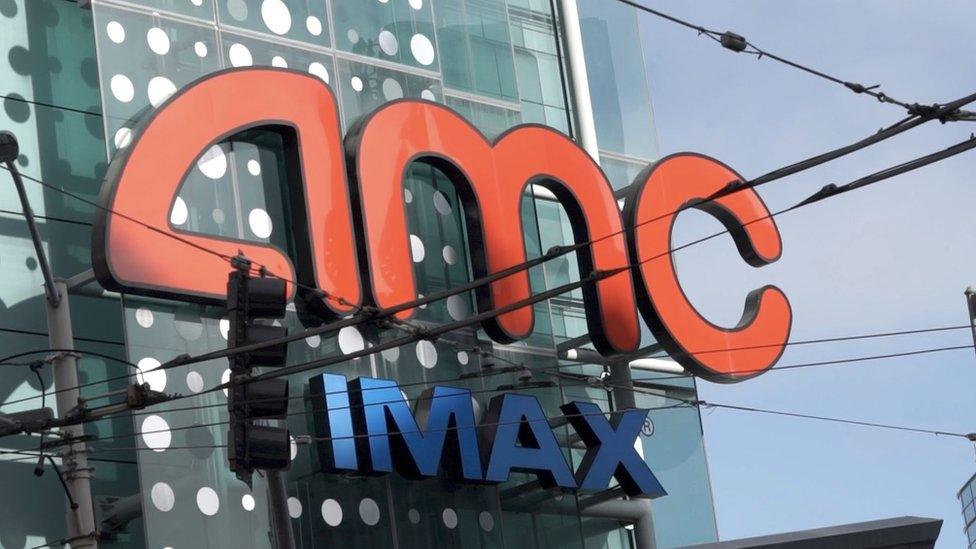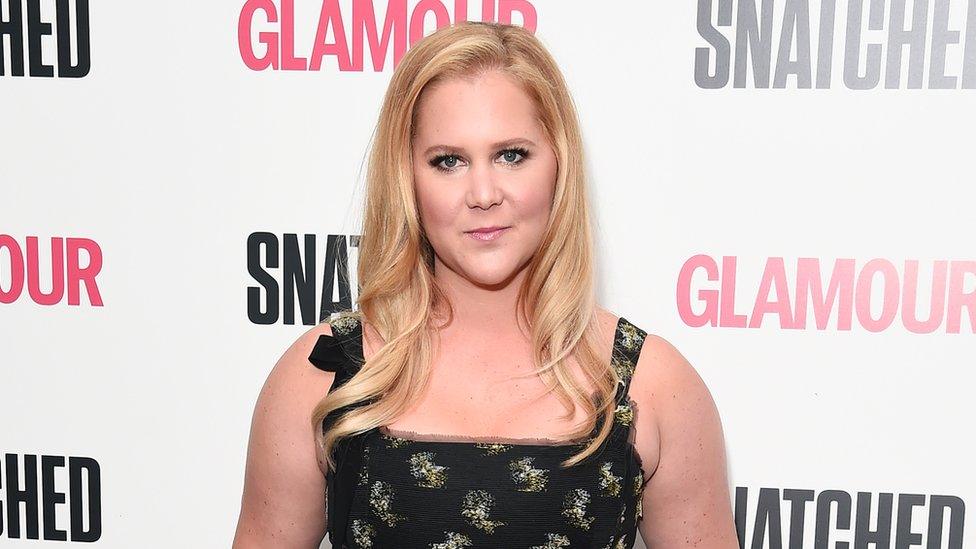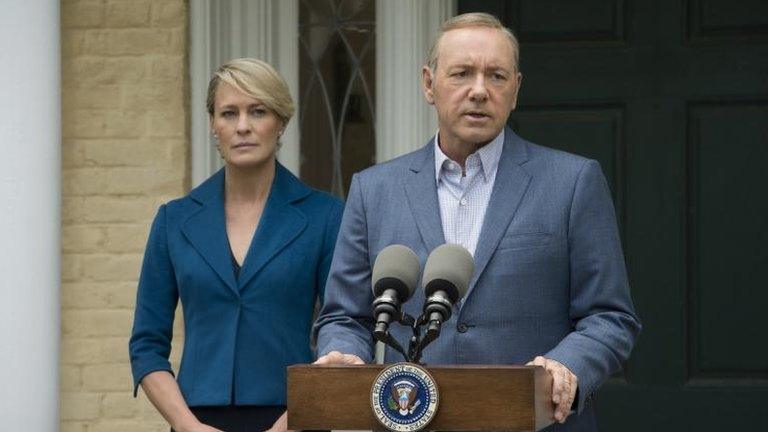He made Netflix, now he's hacking movie night
- Published
- comments
WATCH: Mitch Lowe explains the concept behind Moviepass
Do you remember Blockbuster Video?
Mitch Lowe does. And he remembers what they said to him as he set about putting them out of business with Redbox, the movie rental company.
“They said 'wait a minute, we rent movies for $5. You can’t make money renting them for a dollar!’"
"The year I left we did $1.5bn in revenue. Blockbuster doesn’t exist any more."
Lowe was also on the founding executive team at Netflix, and he helped guide the company to be the dominant online streaming service. It is one of Silicon Valley’s great disruptors - turning an industry almost on its head.
Now he thinks he can do it again, this time with cinema.
Lowe didn’t create Moviepass - it’s been around for six years - but he’s the company’s new chief executive at a time when it is making a dramatic move: it’s lowered its monthly subscription rate to $9.95.
For that money you can watch any movie, at (almost) any movie theatre in the US, any time you like, as often as you like (though not more than once per day).
It used to be $50, an expenditure for only the most dedicated filmgoers. But at $10, Lowe thinks he’s cracked it, and casual film-watching millennials, who have stopped going to the movies as much, will be flooding through the doors once again.
“That’s the group we can get to go much more often,” Lowe says. "That’s great for the industry."
Close proximity
This isn’t some kind of coupon trick or shady deal.
When you sign up to Moviepass, you’re sent a straightforward debit card in the post. When you pick a film you want to watch, and a place to watch it, the company finds out the normal ticket price and adds precisely that amount to your card - and you purchase it just as you would normally.
The money is only unlocked when you get in close proximity to the theatre, and one of the company’s patented technologies locks your card so it can only be used for buying that ticket. In other words, you can’t just load it up for a “film" and then go and buy lunch instead. Trust me, I tried.
So what’s the catch? Well, there’s a big one - but for now at least it’s for the company, not you.

You need to be in close proximity to the theatre before the money will ready
You'd do well to get one movie ticket for $9.95, let alone a whole month's worth. So what gives? It’s simple - Moviepass is going to sink the cost in the hope that eventually, somehow, they will be able to make up the deficit by taking a profit share from other cinema-related spending.
If Lowe can prove that Moviepass is encouraging many more people to go to the movies, he thinks chains will agree to share the added profit from the multiple daylight robberies that occur when you decide to order popcorn and a drink.
Also, he says while the company obviously loses money on each ticket in big cities with high prices, it will make it up in parts of the US where tickets are less than $9.95 - though I’m personally not buying that strategy. Even if a ticket in small-town USA costs $5, two films a month in and Moviepass is already in the red.
It is, ultimately, a quite literal bums-on-seats strategy. An Uber-like approach of subsidising everything at bonkers expense until people can't live without it - and work out the rest later.
AMC's anger
Moviepass already has a powerful enemy, however. AMC, the biggest theatre chain in the US, has threatened to take legal action against the company.

Movie theatre chain AMC is unhappy about the "untenable" deal
"That price level is unsustainable and only sets up consumers for ultimate disappointment down the road if or when the product can no longer be fulfilled," the company said.
AMC is caught in a hard place. It can’t simply block the Moviepass card because, as I mentioned, it’s just a Mastercard. The firm would have to block all Mastercard transactions (or some other inventive method, which would see them fall foul of various legal and contractual obligations).
Lowe suspects the firm might take issue with Moviepass as it is about to launch a subscription service of its own. AMC did not respond to the BBC’s request for comment on this article.
Moviepass expects to have 2.5m subscribers by next year. It currently has 300,000 - 150,000 of which came in the two days following the price drop to $9.95.
But right now it’s struggling to get its cards sent out to new customers - there’s a 2-3 week wait for them to arrive, according to reports.
Yet investors are apparently happy to plough money into the idea until it works (or not). They see the opportunity as being something well beyond the movie ticket, Lowe says.
“We think that going to the movies is the centrepiece of a whole night out. You could go shopping, you could get drinks, you could go to dinner, you might take a Lyft.
"We want to be part of that whole ecosystem. We want to drive more business around that night out to the movies."
Follow Dave Lee on Twitter @DaveLeeBBC, external
You can reach Dave securely through encrypted messaging app Signal on: +1 (628) 400-7370
- Published8 September 2017

- Published24 August 2017

- Published18 July 2017

- Published15 April 2016
